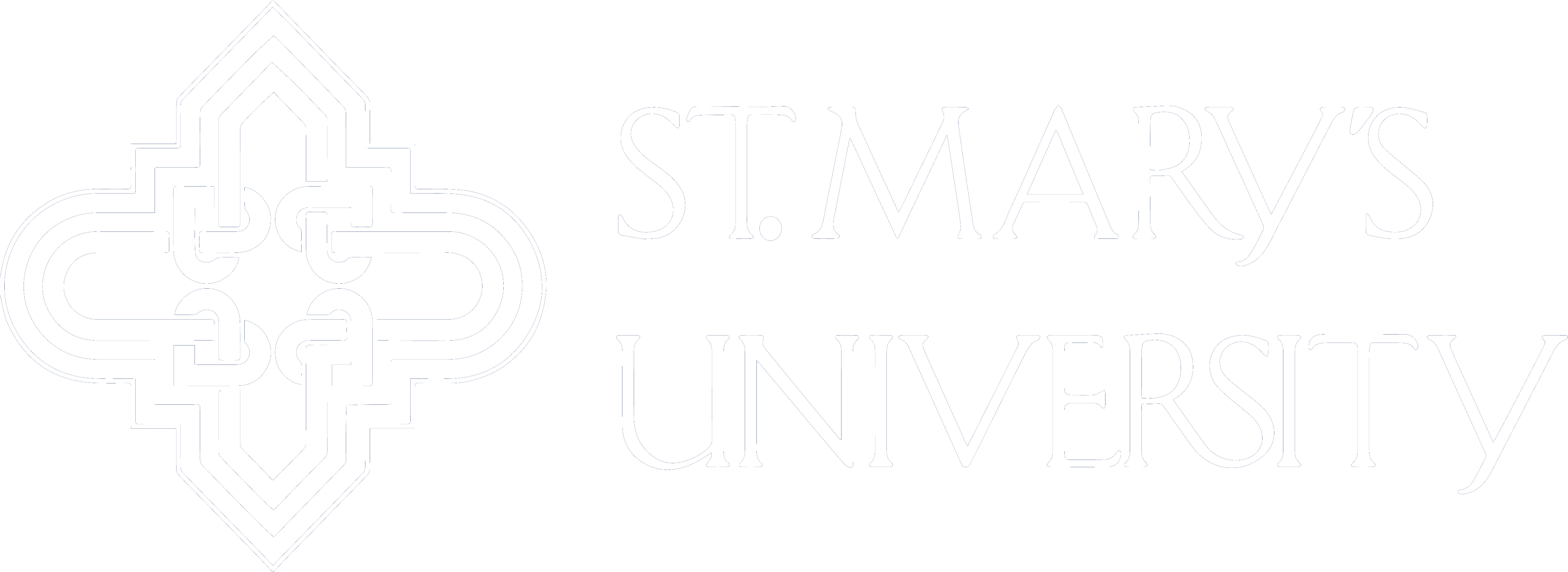Scholars
2024 Scholars
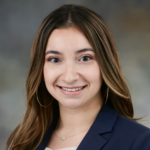

Elizabeth Ochoa, Ph.D.
Dr. Ochoa was born in San Antonio, Texas and raised in the Pacific Northwest near Seattle, WA. She earned her B.S. in Biochemistry from Seattle University in 2013, completing undergraduate research on organometallic synthesis in the lab of Dr. Eric Watson, S.J. Dr. Ochoa was a successful undergraduate researcher; she presented at the American Chemical Society conference and published two manuscripts, including a first author publication in 2013. Dr. Ochoa returned to San Antonio for her doctoral training, earning her Ph.D. in Integrated Biomedical Sciences Graduate Program (Cell Biology, Genetics and Molecular Medicine) from UT Health San Antonio in 2022. She completed her dissertation in the lab of Dr. Bess Frost at the Sam & Ann Barshop Institute for Longevity and Aging Studies, where she discovered that transposable element-derived double stranded RNA is a feature of Alzheimer’s disease and related dementias. This discovery was published in Science Advances in 2023 with Dr. Ochoa as first author. For her accomplishments as a predoctoral student including publications, teaching, mentorship, and leadership, Dr. Ochoa received the 2022 Joe H. Ward Jr. and Bettie B. Ward Award for Excellence in the Study of the Biology of Aging. Interested in continuing her training in aging and dementia, Dr. Ochoa joined the lab of Dr. Kevin Bieniek (Department of Pathology & Laboratory Medicine)Director of the Glenn Biggs Institute for Alzheimer’s and Neurodegenerative Diseases Brain Bank at UT Health San Antonio in 2023. Dr. Ochoa received postdoctoral support from the NIH/NHLBI-funded Cardiovascular Training in Texas T32 to investigate autonomic neuropathology in dementia. As a SABER-IRACDA Scholar, Dr. Ochoa is currently investigating pathological mechanisms of neurodegeneration among diverse populations utilizing the extensive resources at the Biggs Institute Brain Bank. Her research co-mentor is Dr. Jose E. Cavazos in the Biggs Institute.
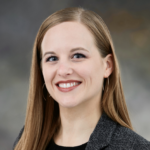

Kristi Dietert, Ph.D.
Dr. Dietert was born and raised in New Braunfels, Texas. After graduating from New Braunfels High School, she attended Texas Lutheran University, Seguin, Texas where she obtained her B.S. degree double majoring in Molecular Biology and Chemistry with cum laude honors. After working in both industry and academic research labs, she matriculated into the Integrated Biomedical Science Graduate Program (Cell Biology, Genetics and Molecular Medicine Discipline) at UT Health San Antonio, where she conducted Ph.D. dissertation research in the lab of Dr. Naomi Sayre in the department of Neurosurgery. Her doctoral research implemented the use of a novel transgenic mouse-line designed to interrogate the function of APOE-receptor, LRP1, in adult neurogenesis in the context of both brain aging and recovery after stroke. This work was published recently in Stem Cells with Dr. Dietert as first author and an additional first author manuscript is currently being prepared. During her graduate studies, Dietert was recipient of multiple honors and awards including predoctoral fellowships from the NIH/NCATS-funded Translational Science Training-TL1 Program and the American Heart Association which was co-funded by the Max and Minnie Tomerlin Voelcker Fund. In addition to her doctoral studies, Dr. Dietert was dually-enrolled in the Graduate Certificate in Translational Science Program in the graduate school at UT Health, which she completed alongside her PhD in 2023. As a SABER-IRACDA postdoctoral research fellow starting March 2024, Dr. Dietert’s training goals are to broaden and strengthen her skills by delving deeper into research involving circadian rhythm, metabolism and the biology of aging in the lab of Dr. Kevin Koronowski in the department of Biochemistry and Structural Biology.
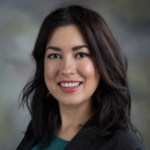

Courtney Johnson, Ph.D.
Dr. Johnson obtained her B.S. in Chemistry from the University of the Incarnate Word, San Antonio, Texas. She subsequently joined the laboratory of Robert E. Lanford, Ph.D. at Texas Biomedical Research Institute in San Antonio as a research assistant and conducted research focused on developing treatments for Hepatitis B viral infections and identifying mechanistic links between chronic hepatitis infection and the development of hepatocellular carcinoma. There, Dr. Johnson developed a passion for characterizing biomolecules and biomolecular interactions at the atomic level to elucidate mechanisms of oncogenesis and cancer progression. This passion led her to pursue her Ph.D. in the Integrated Biomedical Sciences Graduate program (Molecular Biophysics & Biochemistry Discipline) at UT Health San Antonio where she joined the laboratory of Dr. David Libich (department of Biochemistry & Structural Biology) to conduct her doctoral research. As a graduate student, Dr. Johnson was a recipient of a Greehey Graduate Fellowship in Children’s Health. For her dissertation, Dr. Johnson characterized the transient interactions that facilitate self-association of the low-complexity, intrinsically disordered domain of the RNA-binding protein EWS into subcellular compartments. From work done for her dissertation, Dr. Johnson published several papers as first author in Biomolecular NMR Assignment, Journal of Visualized Experiments, and Journal of the American Chemical Society. Dr. Johnson is currently pursuing postdoctoral training in the lab of Dr. Alexander Mazin, a leading expert in homologous recombination, in the department of Biochemistry & Structural Biology. As a SABER-IRACDA Scholar, her research will continue to expound upon how a critical DNA damage repair protein, Rad54, functions in numerous cellular pathways including chromatin remodeling and the homologous recombination pathway of DNA damage repair using cutting-edge methodologies including NMR. Dr. Libich is serving as Dr. Johnson’s research co-mentor to provide continued guidance in the implementation of cutting-edge structural biology methodologies
2023 Scholars


Bianca Romo, Ph.D.
Dr. Romo was raised in Artesia, New Mexico. She attended St. Mary’s University in San Antonio, Texas and earned her B.S. degree in Biological Sciences in 2017. While at St. Mary’s University, she conducted research in the laboratory of Dr. Veronica Contreras-Shannon. She also participated in multiple summer research opportunities through the Maximizing Access to Research Careers (MARC) Undergraduate Student Training in Academic Research (U*STAR) program. Dr. Romo then attended Dartmouth College in New Hampshire where she earned her Ph.D. degree. She studied the estrogen receptor alpha (ERα) interactome and identified TRIM33 as a novel regulator of ERα activity. Following graduate school, Bianca returned to San Antonio as part of the SABER•IRACDA program in 2023 to begin her postdoctoral work in the laboratory of Dr. Ratna Vadlamudi, who will serve as her primary mentor. Her research co-mentor is Dr. LuZhe Sun in the Department of Cell Systems and Anatomy.


Nikki Clauss, Ph.D.
Dr. Clauss was raised in Wisconsin and received a B.S. degree in psychology from the University of Wisconsin at Green Bay, Wisconsin. She earned her Ph.D. in Psychology with a concentration in Neurobiology from Oklahoma State University in 2020. For her dissertation, Dr. Clauss used behavior, neuroendocrinology, and genetic techniques to assess the connection between allostatic load, neurodevelopment, and feeding behavior in human and animal models. After graduate school, Dr. Clauss moved to San Antonio, Texas to begin her postdoctoral career in the laboratory of Dr. Lynette Daws, Professor of Cellular and Integrative Physiology at the University of Texas Health Sciences Center in San Antonio. Dr. Clauss is conducting research assessing the role of monoaminergic neurotransmitter transporters in post-traumatic stress disorder (PTSD) and substance abuse. She joined the SABER•IRACDA program in 2023 with Dr. Daws continuing to serve as her primary mentor and to also develop her teaching skills. Her research co-mentors are Dr. April Risinger in the Department of Pharmacology and Dr. Alex Bishop in the Department of Cell Systems and Anatomy.
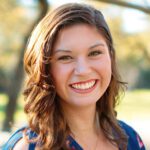

Meredith Ogle, Ph.D.
Dr. Ogle was born and raised in the Tidewater region of Virginia. She attended Trinity University in San Antonio where she earned her B.S. degree in Biochemistry & Molecular Biology in 2014. During her time at Trinity University, she conducted research in the lab of Dr. Nancy Mills in the Department of Chemistry. She presented papers on her work at two national American Chemical Society (ACS) meetings and won several awards including Outstanding Senior Organic Chemistry Student Award. Dr. Ogle then moved to Rice University in Houston from where she graduated with her Ph.D. in Photochemistry in 2019. At Rice, Dr. Ogle worked on developing intracellular fluorescent thermometers in the Laboratory of Nanoscale Inorganic and Bio-inorganic Chemistry directed by Dr. Angel Martí. While at Rice, she was also involved in teaching as a Teaching Assistant and she was a recipient of a Harry B. Weisser Teaching Award. She then returned to San Antonio, and after taking some time off, started training in 2021 as a postdoctoral research fellow at UT Health San Antonio. She joined the lab of Dr. David Gius (Radiation Oncology) because she was keen to broaden her knowledge of, and technical skills in biology to complement her background in chemistry. Dr. Ogle is currently investigating the role of sirtuins (SIRT3) in breast cancer metabolism, supported by a postdoctoral fellowship on the Biology of Aging T32 training grant and as a postdoc, she has already published a review in Antioxidants. Her research co-mentor is Dr. Kevin Koronowski in the Department of Biochemistry and Structural Biology.
2022 Scholars
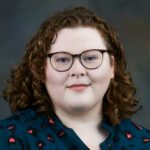

Emily Lancaster, Ph.D.
Dr. Lancaster was born and raised in Central Kentucky. She attended Kentucky State University, a historically black college/university (HBCU), where she earned her B.S. degrees in Biology and Chemistry. She then moved to Texas where she obtained her Ph.D. in Pharmaceutical Sciences in 2022 from the University of Texas at Austin. Upon graduation, Dr. Lancaster joined the SABER•IRACDA program to hone her teaching skills while also continuing to conduct high-impact research in the lab of Dr. David Libich in the Department of Biochemistry & Structural Biology. Her research focuses on the unique biophysical properties of intrinsically disordered proteins (IDPs) in order to understand their role in cellular processes and in disease states, such as Ewing Sarcoma. Her research co-mentor is Dr. Susan Weintraub who is also in the Department of Biochemistry & Structural Biology.


Alisa Isaac, Ph.D.
Although born in Japan where she spent her early years, Dr. Isaac moved her family back to the U.S. and eventually settled down in San Antonio, Texas during her teenage years. She attended the University of Texas at San Antonio (UTSA) where she received her B.S. in Biomedical Engineering. During her time at UTSA, she performed research at the U.S. Army Institute of Surgical Research, investigating poly-trauma induced coagulopathy and drug-delivery via keratin-based hydrogels for treating burns. Dr. Isaac then moved to Texas A&M University, College Station from where she graduated with her Ph.D. in Biomedical Engineering in 2022. At Texas A&M, Dr. Isaac investigated the effects of the rise of anti-polyethylene glycol (PEG) antibodies in the use of PEG hydrogels for tissue engineering in Dr. Daniel Alge’s bio-instructive materials lab. In her senior years as a graduate student, Dr. Isaac gained extensive experience teaching undergraduates, including serving as instructor of records on several courses. She joined the SABER•IRACDA program in summer 2022 under the mentorship of Dr. Teja Guda who is jointly appointed at University of Texas San Antonio, Department of Biomedical Engineering and Department of Cell Systems & Anatomy at UT Health San Antonio. In Dr. Guda’s lab, Dr. Isaac is currently investigating the effects of differing mechanical stimuli on vascularization and osteogenic potential of tissue engineering platforms. Her research co-mentor is Dr. Jean Jiang in the Department of Biochemistry & Structural Biology.
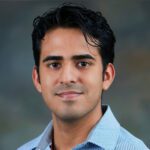

Ramiro Ramirez, Ph.D.
Dr. Ramirez, who was raised in San Antonio, received his B.S. degree in Biology and Biomathematics from Our Lady of the Lake University in San Antonio. He then moved to Texas Tech University at Lubbock, Texas where he received his M.S. in Mathematics in 2019 and Ph.D. in Mathematics in 2021. Following his graduation, he joined the lab of Dr. Ronald Rodriguez in the Department of Urology as a postdoctoral fellow to apply Machine Learning and AI techniques to genetics, health care, pathology and MRI imaging. Dr. Ramirez, who has extensive teaching experience as a graduate student, joined the SABER•IRACDA in summer of 2022 to continue to develop his teaching skills. His research co-mentors are Dr. Yidong Chen, a computational biologist in the Department of Population Health Sciences and Dr. Robin Leach in the Department of Cell Systems & Anatomy
2021 Scholars
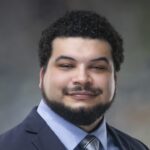

Rogers Brown, III, Ph.D.
Current position: Visiting Assistant Professor of Biology, Our Lady of the Lake University, San Antonio, TX.
Dr. Brown received his B.S. from Texas Lutheran University and his Ph.D. in Biomedical Sciences in 2020 from Baylor College of Medicine in Houston. He joined the laboratory of Dr. Jeffery Boychuk in department of Cellular & Integrative Physiology to continue training as a postdoctoral research fellow in late 2020 and the SABER•IRACDA Program in 2021. His research co-mentor was Dr. James Stockand, also in the Cellular & Integrative Physiology department. Dr. Brown’s research was focused on studying the effects of stroke and Alzheimer’s disease on the motor functions of mammals. His teaching mentors were Dr. Thomas (Ted) Mancrini at St. Mary’s University and Dr. Jim Hall at Our Lady of the Lake University. While in the program, Dr. Brown published a paper in Frontiers in Systems Neuroscience as co-first author. He is currently a Visiting Assistant Professor of Biology in the department of Mathematics & Science at Our lady of the Lake University in San Antonio.
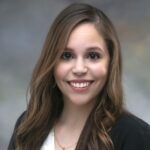

Meghan Rueda, Ph.D.
After obtaining her Ph.D. degree in 2020 from UT Health San Antonio, Dr. Rueda first worked as a medical science liaison (MSL) for a biotechnology company in Boston, MA. In this position, she not only gave scientific and educational presentations to physicians and clinicians, but also served as the point of contact for 16 clinical trial sites across the southern United States. Dr. Rueda returned to San Antonio and joined the laboratory of Dr. Ann Griffith in the Department of Microbiology, Immunology and Molecular Genetics as a SABER•IRACDA Scholar in 2021 studying the thymic stromal microenvironment and the effect of aging on key T cell tolerance mechanisms. Dr. Rueda’s research co-mentor is Dr. Mike Berton who is also in the Department of Microbiology, Immunology and Molecular Genetics. Dr. Rueda left the program early for personal reasons.
2020 Scholars
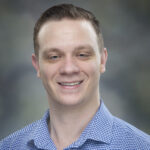

Benjamin T. Enslow, M.D.
Current position: Assistant Professor of Biological Sciences (tenure track), St. Mary’s University, San Antonio, TX.
Dr. Enslow received his M.D. degree from the Long School of Medicine at UT Health San Antonio in 2019. While in medical school, Dr. Enslow had conducted research in protein biophysics, calcium signaling, and cancer biology/pharmacology. After medical school, Dr. Enslow spent his first year as postdoctoral research fellow studying mitochondrial biology, mitochondrial calcium dynamics, and cellular metabolism, which resulted in a co-first author article in Cell and another co-authored paper in Science Signaling. He joined the SABER•IRACDA Program in 2020. As a SABER•IRACDA Scholar in Dr. Elizabeth Leadbetter’s lab in the Department of Microbiology, Immunology and Molecular Genetics (MIMG), his research focused on immunometabolism in the context of obesity, type II diabetes, metabolic syndrome, and non-alcoholic fatty liver disease (NAFLD). His research co-mentor was Dr. Luke Norton in the Department of Medicine (Division of Diabetes). His teaching mentors were Drs. Ahmad Galaleldeen and Thomas (Ted) Mancrini at St. Mary’s University. While in the program, Dr. Enslow placed 1st in the oral presentation competition at the 10th Annual San Antonio Postdoctoral Research Forum held at UT Health San Antonio in September 2022. He is currently an Assistant Professor of Biological Sciences (tenure track) in the School of Science, Engineering & Technology (SET) at St. Mary’s University in San Antonio.
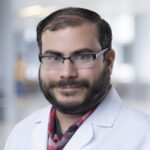

Carlos Rivera, Ph.D.
Current position: Postdoctoral Research Fellow, Microbiology, Immunology & Molecular Genetics, UT Health San Antonio.
Dr. Rivera received his B.S in Biology and M.S. in Chemistry from the University of Texas Rio Grande Valley. He subsequently moved to San Antonio where he obtained his Ph.D. in immunology from UT Health San Antonio in 2020. He joined the SABER•IRACDA Program and the lab of Dr. Paolo Casali shortly afterwards to continue postdoctoral training in the department of Microbiology, Immunology and Molecular Genetics (MIMG). His research co-mentor was Dr. Mike Berton who is in the same department. Dr. Rivera investigated the role of genetic and epigenetic factors that help direct and shape maturation of human T cell-dependent and T cell-independent antibody responses to bacteria and viruses in a novel humanized mouse model. Dr. Rivera is first author on a paper that was published in Science Advances in 2023 and another that is being prepared for submission to Nature Immunology, both from work done during his tenure in the program. Dr. Rivera’s teaching mentors were Dr. Jesus Segovia (SABER•IRACDA alumnus) and Dr. Terry Shackleford at St. Mary’s University. He is currently continuing postdoctoral training in the Casali lab in the MIMG department at UT Health San Antonio.
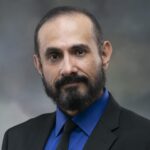

Miguel A. de la Flor, Ph.D.
Current position: Postdoctoral Research Fellow, Pharmacology, UT Health San Antonio.
Dr. de la Flor, who is a trained medical illustrator, earned his B.S. in Psychology and Ph.D. in Biology with a concentration in neurobiology in 2012 and 2019 respectively, both from the University of Houston. He then served on the faculty in the Biology and Biochemistry departments at the University of Houston, where he taught genetics and general biology for a year prior to joining the SABER•IRACDA Program and the lab of Dr. Erzsebet Kokovay in the department of Cell Systems & Anatomy in 2020. His research co-mentor was Dr. Jason O’Connor in the department of Pharmacology. Dr. de la Flor investigated the putative neuroprotective effects of deletion of the kynurenine 3-monooxygenase gene in genetically-engineered mouse models. His teaching mentors were Dr. Lori Boies and Dr. Ahmad Galaleldeen at St. Mary’s University. He is currently continuing research in the O’Connor lab in the department of Pharmacology at UT Health San Antonio supported by a Veterans Affairs (VA) award (3I01 BX003195-05A1S1). This award (a diversity supplement to Dr. O’Connor’s VA Merit Award) will fund an additional two years of postdoctoral training.
2019 Scholars


Sevan Alwan, Ph.D.
Current position: Assistant Professor/Research
Dr. Alwan was born and raised in Baghdad, Iraq. She received her B.Sc. in Biology and M.Sc. in Medical Microbiology from Baghdad University. She obtained her PhD in Medical Microbiology from Al-Nahrain University, also in Baghdad. In 2017, Dr. Alwan relocated to the U.S. and joined the laboratory of Dr. Philip LoVerde in the Department of Biochemistry & Structural Biology at the University of Texas (UT) Health Science Center at San Antonio that focused on Schistosomiasis. Dr. Alwan’s research as a SABER•IRACDA Scholar involved re-engineering of an existing anti-schistosomal drug to make it more effective against all species of Schistosomes. She also investigated the genetic basis of resistance to praziquantel, the most commonly used anti-schistosomal drug. Her co-research mentor was Dr. Alexander Taylor, faculty in the Department of Biochemistry and Structural Biology. While in the program, Dr. Alwan published 5 papers including one as first author in Molecular Biochemistry and Parasitology. Her teaching mentors were Dr. Ahmad Galaleldeen at St. Mary’s University and Dr. James Hall at Our Lady of the Lake University.
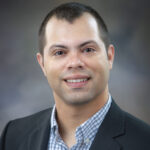

Charles S. Fermaintt, Ph.D.
Current position: Assistant Professor of Biochemistry, Department of Chemistry & Biochemistry, at the University of the Incarnate Word . Educator conducting research in the field of cancer pharmacology (San Antonio, TX) https://www.linkedin.com/in/csfermaintt
Dr. Fermaintt was born and raised in Caguas, Puerto Rico and he received his B.S. in Chemistry from University of Puerto Rico (UPR)-Humacao. He completed his Ph.D. in Biological Chemistry at UT Southwestern Medical Center in Dallas, TX where he studied the role of oligosaccharides as modulators of innate immunity. As a SABER•IRACDA Scholar, he trained under the mentorship of Dr. April Risinger, in the Department of Pharmacology. His co-research mentor was Dr. Susan Mooberry, faculty in the same department. Dr. Fermaintt’s research as a SABER•IRACDA Scholar focused on identification and characterization of molecules derived from natural sources including plants and fungi that could be used as adjunct to existing immunotherapies against breast cancer and in particular triple negative breast cancer. While in the program, he published 3 manuscripts including two as first author in Molecular Pharmacology and Cancers (Basel). His teaching mentors were Dr. Teresita Munguía and Dr. James Hall, both at Our Lady of the Lake University.


Amanda Muñoz, Ph.D.
Current position: Assistant Professor of Biology and Chemistry (tenure-track), Texas A&M International University (TAMIU), Laredo, TX.
Dr. Muñoz completed her B.S, in Microbiology at New Mexico State University, La Cruces, NM and her Ph.D. in Cancer Biology at UT Health Science Center at San Antonio. As a SABER•IRACDA Scholar training in the laboratory of Dr. Alexei Tumanov, Department of Microbiology, Immunology and Molecular Genetics (MIMG), Dr. Muñoz investigated the role of lymphotoxin beta receptor (LTβR) in colorectal tumorigenesis. Her co-research mentor was Dr. Peter Dube, who is also a faculty in MIMG. While in the SABER•IRACDA program, Dr. Munoz published two papers including one as a co-senior author in Frontiers in Immunology. Her teaching mentors were Dr. Terry Shackleford at St. Mary’s University and Dr. James Hall at Our Lady of the Lake University.
2018 Scholars
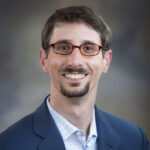

Keith A. Ashcraft, Ph.D.
Current position: Assistant Professor of Biology (tenure-track), Shriner University, Kerrville, TX.
Dr. Ashcraft received his B.S. in Biology at Stephen F. Austin State University, Nacogdoches, TX and he completed his Ph.D. in Molecular Medicine at UT Health Science Center at San Antonio. As a SABER•IRACDA Scholar, Dr. Ashcraft completed postdoctoral training as a SABER•IRACDA Scholar in the Department of Urology department under the co-mentorship of Dr. Denise O’Keefe and Dr. Dean Bacich. He investigated the role of folate, an essential vitamin (B9) in the development and progression of prostate and kidney cancers and published three papers during his time in the program including one as first author in Urology and Oncology. An abstract that Dr. Ashcraft proffered was selected for oral presentation at the annual meeting of the American Urological Association (AUA) in 2021. Dr. Ashcraft’s co research mentor was Dr. Renee Yew (Department of Molecular Medicine) and his teaching mentors were Dr. John Gomez and Dr. Susan Murphy, both at Our Lady of the Lake University.


Lindsey Barron, Ph.D.
Current position: Visiting Assistant Professor of Biology, University of the Incarnate Word, San Antonio, TX.
Dr. Barron obtained her B.S. in Biochemistry from Texas A&M University-Corpus Christi (TAMUCC), Corpus Christi, TX. After completing her B.S. degree, she spent a year mentoring undergraduate students in the Environmental Microbiology laboratory at TAMUCC. This experience ignited her passion for mentoring and motivated her to pursue a career as a teaching professor at a primarily undergraduate institution. In pursuit of this goal, she completed her Ph.D. in Cancer Biology at the UT Health Science Center at San Antonio, then completed postdoctoral training as a SABER•IRACDA Scholar in Dr. Thomas Boyer’s laboratory in the Department of Molecular Medicine. She studied the tumorigenesis of uterine fibroids. Her co-research mentor was Dr. Pratap Kumar (Departments of Urology and Molecular Medicine). Dr. Barron published one first author paper in Fertility & Sterility (F&S) Science while in the program. Her teaching mentors were Dr. Ahmad Galaleldeen and Dr. Susan Oxley, both at St. Mary’s University.
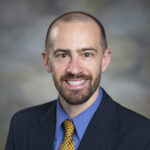

Jeremy Stubblefield, Ph.D.
Current position: Assistant Professor of Biology (tenure-track), Benedictine College, Atchison, KS.
Dr. Stubblefield received his B.S. in Biology from the University of St. Thomas, St. Paul, MN and his Ph.D. n Neuroscience from UT Southwestern Medical Center, Dallas, TX. As a SABER•IRACDA Scholar, Dr. Stubblefield trained in Dr. James Lechleiter’s laboratory in the Department of Cell Systems & Anatomy, investigating the circadian component of fatty acid metabolism in astrocytes and the neuroprotective role of thyroid hormone during stroke. His research co-mentor was Dr. Naomi Sayre (Department of Neurosurgery). He published one first author paper while in the program. His teaching mentors were Dr. Christine Gray and Dr. Lori Boies at St. Mary’s University.
2017 Scholars
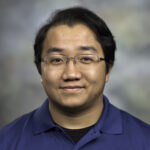

Brian Q. Bui, Ph.D.
Current position: Math Teacher, June Shelton High School, Dallas, TX.
A native Texan of Vietnamese descent, Dr. Bui received his B.S. in Physics with Biophysics option and B.A. in Mathematics from St. Mary’s University, San Antonio, TX and his Ph.D. in Applied Physics from UT Arlington, Arlington, TX. As a SABER•IRACDA Scholar, Dr. Bui completed postdoctoral training in the laboratory of Dr. Neil Kirby (Department of Radiation Oncology) in the Mays Cancer Center. His co-research mentor was Dr. Nikos Papanikalaou in the same department. Dr. Bui developed and characterized a novel non-invasive radiation measurement device, specifically a “biological” dosimeter, which directly quantify biological damage from radiotherapy and that could help improve treatments for cancer patients. Dr. Bui published four papers while in the program including one as first author in Applied Radiation and Isotopes. His teaching mentors were Dr. Richard Cardenas and Dr. Richard Lombardini at St. Mary’s University.


Courtney (Carroll) Alexander, Ph.D.
Current position: Assistant Professor of Biology (tenure-track), University North Carolina at Pembroke, Pembroke, NC.
Dr. Alexander received her B.A. in Biochemistry from Hamilton College, New York, NY and her Ph.D. in Neuroscience from Weill Cornell Medicine, New York, NY. As a SABER•IRACDA Scholar, she trained in the laboratory of Dr. Karl Rodriguez (Department of Cell Systems & Anatomy) at the Barshop Institute for Longevity & Aging Studies. Her research co-mentor was Dr. Bess Frost (Department of Cell Systems & Anatomy). Dr. Alexander’s research focused on the role of the small heat shock protein beta 1 (HspB1, also known as Hsp27 in humans) in longevity and in neuro-degenerative disorders. She published a first author paper in Journal of Gerontology. Her teaching mentors were Dr. Lori Boies and Dr. Ahmad Galaleldeen at St. Mary’s University.
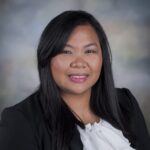

Alison Doyungan Clark, Ph.D.
Current position: Instructor of Biology, Palo Alto College, San Antonio, TX.
Dr. Doyungan Clark received her B.S. in Biomedical Sciences from Texas A&M University-Corpus Christi (TAMUCC), Corpus Christi, TX and her Ph.D. in Cancer Biology from UT Health Science Center at San Antonio. As a SABER•IRACDA Scholar, she trained in the laboratory of Dr. Pratap Kumar in the Department of Urology. Her research co-mentor was Dr. Sang Eun Lee (Department of Molecular Medicine). Her research focused on a novel strategy to improve conventional therapy for prostate cancer. Her teaching mentors were Dr. James Hall and Dr. Susan Murphy at Our Lady of the Lake University.
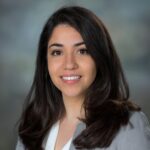

Pamella (Tijerina) Gann, Ph.D.
Current position: Toxicologist, Product Integrity and Safety, JLI, Dallas-Fort Worth, TX.
Dr. Tijerina obtained her B.S. in Biology from the UT San Antonio and her Ph.D. in Environmental Health Sciences (Toxicology) from New York University (NYU Langone Health), New York, NY. She was a SABER•IRACDA Scholar under the mentorship of Dr. Edward Brooks (Department of Pediatrics/Division of Allergy and Immunology) and her research co-mentor was Dr. Peter Dube (Department of Microbiology, Immunology & Molecular Genetics). While in the program, Dr. Tijerina investigated the impact of diesel exhaust particles on neurogenic mechanisms of allergic airway inflammation with the aim of discovering novel therapeutic interventions for asthma. Dr. Tijerina left the program early, for personal reasons, after 1 year of training.
2016 Scholars
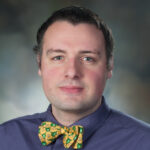

Jonathan M. Berman, Ph.D.
Current position: Assistant Professor of Biomedical Sciences (tenure-track), New York Institute of Technology, Jonesboro, AR.
Dr. Berman completed his B.S. in Biological Sciences at the Rochester Institute of Technology, Rochester, NY and he obtained his Ph.D. in Physiology from the University at Buffalo (State University of New York), Buffalo, NY. As a SABER•IRACDA Scholar, he trained in the laboratory of Dr. James Stockand in the Department of Cellular and Integrative Physiology. His research co-mentor was Dr. Glenn Toney, also in the same department. Dr. Berman’s research focused on the molecular pathogenesis of hypertension with emphasis on regulation of epithelial Na+ channel in the kidney. Dr. Berman published six papers while in the program including two as first author in American Journal of Physiology, Renal Physiology and Journal Physiology. Dr. Berman’s teaching mentor was Dr. Timothy Raabe at St. Mary’s University.
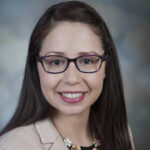

Valerie Cortez, Ph.D.
Dr. Cortez received her B.S. in Biology from the UT San Antonio and her Ph.D. in Cancer Biology from UT Health Science Center San Antonio. While in the SABER•IRACDA program, Dr. Cortez conducted research as a postdoctoral research fellow under the mentorship of Dr. Edward Medina in the Department of Pathology & Laboratory Medicine. Her research co-mentor was Dr. Kay Oyajobi. Her research elucidated the role of obesity in promoting the development and progression of multiple myeloma. Although she left the program early for personal reasons, Dr. Cortez published one paper as first author in International Journal of Cancer.
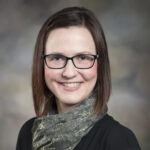

Rebekah Mahoney, Ph.D.
Most recent position: Visiting Assistant Professor of Biological Sciences, St. Mary’s University, San Antonio, TX.
Dr. Mahoney completed her B.Sc. in Biomedical Sciences at the University of Ulster, Ulster, Northern Ireland and her PhD in Physiology at UT Health Science Center at San Antonio. As a SABER•IRACDA Scholar, she trained in the laboratory of Dr. Bess Frost (Department of Cell Systems and Anatomy) in the Barshop Institute for Longevity and Aging Studies. She investigated changes in nuclear calcium signaling in Alzheimer’s disease and related tauopathies and published one first author manuscript in Cell Reports. Her research co-mentor was Dr. Veronica Galvan (Department of Cellular and Integrative Physiology) and her teaching mentors were Dr. Susan Murphy at Our Lady of the Lake University and Dr. Lori Boies at St Mary’s University.
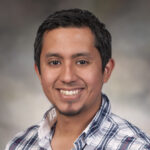

Christopher G. Peña, Ph.D.
Current position: Managing Director (Professional Content), American Cancer Society
Current position: Managing Director (Professional Content), American Cancer Society
Dr. Peña received his BS in Biology from UT San Antonio and his PhD in Cancer Biology from UT Southwestern Medical Center, Dallas, TX. As a SABER•IRACDA Scholar, he trained in the laboratory of Dr. Robin Leach, Department of Cell Systems and Anatomy. His research involved identification of novel biomarkers predictive of aggressive prostate cancer as well as other diseases of the prostate. His co-research mentor was Dr. Denise O’Keefe (Department of Urology). His teaching mentors were Dr. Veronica Contreras-Shannon and Dr. Christine Gray at St. Mary’s University.


Briana Hauff Salas, Ph.D.
Current position: Associate Professor of Biology (tenured), Our Lady of the Lake University, San Antonio, TX.
Dr. Salas received her B.S. in Environmental Studies from Binghamton University (State University of New York), Binghamton, NY and her M.S. in Environmental Science from Pace University, New York, NY. She completed her Ph.D. in Integrative Biology and Ecology, Evolutionary Biology and Behavior at Michigan State University, Lansing, MI. Dr. Salas completed postdoctoral training under Dr. Elizabeth Leadbetter in the Department of Microbiology, Immunology, and Molecular Genetics. Her research co-mentor was Dr. Peter Dube. She transitioned from researching coral immunology to using a murine model of immunology. While a postdoc in the program, Dr. Salas published one paper as a co-author manuscript in Nature Immunology. Her teaching mentors were Dr. James Hall and Dr. John Gomez at Our Lady of the Lake University.
2015 Scholars


Megan B. Borror, Ph.D.
Most recent position: Assistant Professor of Biology (tenured-track), Our Lady of the Lake University, San Antonio, TX.
Dr. Borror received her B.S. in Biology and PhD in Microbiology from Indiana University, Bloomington, IN. As a SABER•IRACDA Scholar, Dr. Borror studied the role of mitochondrial dysfunction (specifically electron transport chain insufficiency) in longevity in the laboratory of Dr. Shane Rea (Department of Cellular and Integrative Physiology) at the Barshop Institute for Longevity and Aging Studies. Her research co-mentor was Dr. Alfred Fisher. Dr. Borror published four papers while in the program including one as first author in Cells. Her teaching mentors were Dr. James Hall and Dr. Susan Murphy at Our Lady of the Lake University.
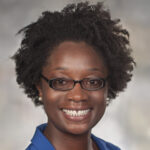

Rheaclare Fraser-Spears, Ph.D.
Current position: Associate Professor of Pharmaceutical Sciences (tenured), University of the Incarnate Word, San Antonio, TX.
Dr. Fraser-Spears received her B.S. in Biochemistry at Spelman College, Atlanta, GA and a PhD in Pharmacology from the University of Michigan, Ann Arbor, MI. As a SABER•IRACDA Scholar, she investigated novel analogs of anti-depressants that target specific proteins (low-affinity, high-capacity monoamine transporters, organic cation transporters 2 and 3, and plasma membrane monoamine transporter) to regulate important brain chemicals, offering a new approach in the treatment of depression. Her research activities were conducted in the laboratory of Lynnette Daws, PhD, in the Department of Cellular and Integrative Physiology. Her research co-mentor was Dr. Wouter Koek, faculty in the Department of Psychiatry and Pharmacology. Dr. Fraser-Spears published two papers while in the program, both as first author in European Journal of Pharmacology and European Journal of Medicinal Chemistry. Her teaching mentors were Dr. James Hall and Dr. John Gomez at Our Lady of the Lake University.
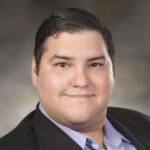

Jesus A. Segovia, Jr., Ph.D.
Current position: Assistant Professor of Biological Sciences (tenure-track), St. Mary’s University, San Antonio, TX.
Dr. Segovia earned his B.S. in Biology from Baylor University, Waco, TX. M.S. in Biology from Texas A&M International University (TAMIU) and a PhD in Microbiology at UT Health Science Center at San Antonio. As a SABER•IRACDA Scholar under the co-mentorship of Dr. Joel Baseman and Dr. Thirumalai Kannan in the Department of Microbiology and Immunology, he conducted research to elucidate the role of NLRP3 (NLR-family, leucine-rich repeat protein 3) in regulating inflammation and innate immune cell response during Mycoplasma pneumoniae infection. While in the program, Dr. Segovia published a first author paper in Infections and Immunity. His teaching mentors were Dr. Ahmad Galaleldeen and Dr. Timothy Raabe at St. Mary’s University.
Current Associate Scholars
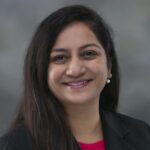

Manpreet Semwal, Ph.D.
Current position: Postdoctoral Research Fellow, Department of Medicine, Barshop Institute for Longevity and Aging Studies, UT Health San Antonio.
Dr. Semwal, who is from India, obtained her PhD in Immunology from UT Health Science Center at San Antonio before commencing postdoctoral training as an Associate SABER•IRACDA Scholar in the laboratory of Dr. Nicolas Musi at the Barshop Institute for Longevity and Aging Studies.
Alumni
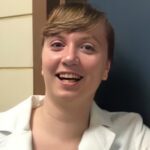

Susan M. Greene, Ph.D.
Current position: Assistant Professor of Neuroscience (tenure-track), University of the Incarnate Word, San Antonio, TX.
Dr. Greene obtained her B.S in Psychology from Millersville University in Millersville, PA. She then obtained her M.A. and Ph.D., both in Experimental Psychology from the University of Montana in Missoula, MN before joining the UT Health Science Center at San Antonio as a postdoctoral research fellow. As an Associate SABER•IRACDA Scholar, Dr. Greene conducted research in the laboratory of Dr. Georgina Gould in the Department of Cellular and Integrative Physiology and was recipient of Postdoctoral Fellowship from the NHLBI-funded Pathobiology of Occlusive Vascular Disease (T32). Dr. Greene published one paper as first author in Hormone and Behavior.
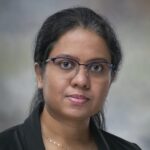

Ruvini U. Pathirana, Ph.D.
Current position: Assistant Professor of Microbiology (tenure-track), Texas A&M International University (TAMIU), Laredo, TX.
Dr. Pathirana, who is from Sri Lanka, obtained her PhD in Microbiology from the University of Nebraska, Lincoln, NE and was a postdoctoral research fellow initially at University at Buffalo before relocating to the UT Texas Health Science Center at San Antonio. As an Associate SABER•IRACDA Scholar, Dr. Pathirana conducted research in the laboratory of Dr. David Kadosh in the Department of Microbiology, Immunology and Molecular Genetics and was recipient of an American Heart Association (AHA) Postdoctoral Fellowship.


Manish Parihar, Ph.D.
Current position: Research Scientist: Department of Biochemistry and Structural Biology, Greehey Childrens Cancer Research Institute, UT Health San Antonio.
Dr. Parihar, who is from India, obtained his M.S. in Biology from the University of Louisiana Monroe, Monroe, LA and Ph.D. in Quantitative Biology from UT Arlington, Arlington, TX. As an Associate SABER•IRACDA Scholar, Dr. Parihar conducted postdoctoral research in the laboratory of Dr. Dave Sharp in the Department of Molecular Medicine. Dr. Parihar published three papers as a postdoc including one as first author in Clinical Colorectal Cancer.



